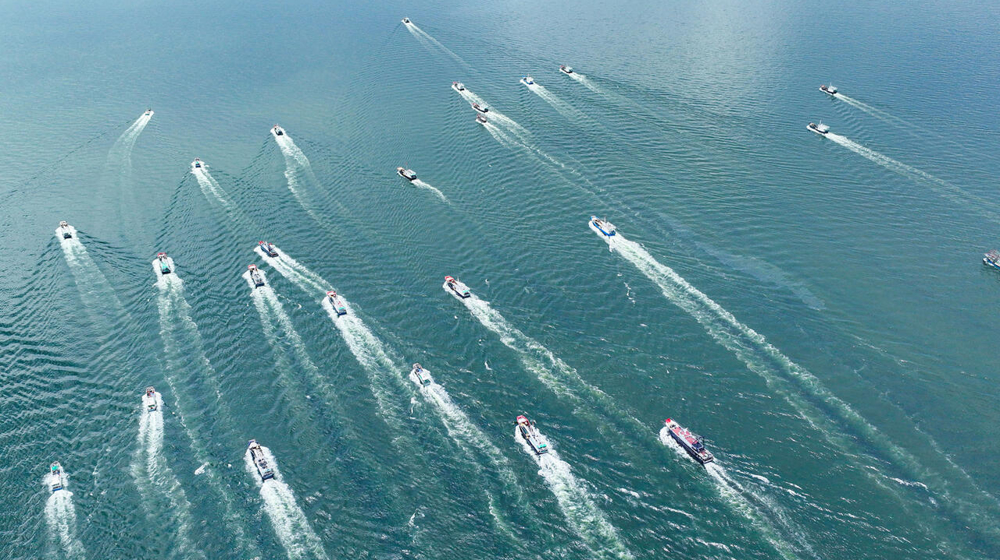UN session on high seas biodiversity ends without agreement
UN member states have ended two weeks of negotiations on a treaty to protect biodiversity in the high seas without reaching any agreement.
The latest talks came to an end on Friday with negotiators unable to thrash out a legally binding text to address growing environmental and economic challenges.
"Although we did make excellent progress, we still do need a little bit more time to progress towards the finish line," said conference chair Rena Lee.
The member states have been holding formal and informal discussions for some 15 years.
Many had hoped that the latest round, held at UN headquarters in New York, would be the last one, and that participants would be able to write a final text on "the conservation and sustainable use of marine biodiversity beyond national jurisdiction," or BBNJ.
"While it's disappointing that the treaty wasn't finalized during the past two weeks of negotiations, we remain encouraged by the progress that was made," said Liz Karan with the NGO Pew Charitable Trusts, calling for a new session by the end of the year.
One of the most sensitive issues in the text was the sharing of potential profits from the development of genetic resources in international waters, where pharmaceutical, chemical and cosmetic companies hope to find miracle drugs, products or cures and make huge profits.
This type of research in the sea and water resources is mostly exclusive to rich countries due to their high cost, but developing countries do not want to give up the large and potential profits from marine resources.
It seems that the text of the new draft is still in the hands of developing countries, and in this draft they put forward a requirement that two percent of all future sales be redistributed, eventually increasing to eight percent.
Greenpeace’s Will McCallum blames the European Union, the United States and Canada for the proposal's rejection.
Similar issues are raised in other international negotiations, such as on climate change, where developing countries, which have suffered the most from global warming, have tried desperately to get richer in order to help pay to offset those impacts.
The high seas begin at the border of a country's exclusive economic zone (EEZ) — which, under international law, extends no more than 200 nautical miles (370 km) from its coast — and are not under the jurisdiction of any country. About 60% of the world's oceans have such conditions.
While healthy marine ecosystems are critical to the future of human life, especially to limit global warming, only 1% of international waters are protected.
One of the key pillars of a final BBNJ treaty is the authorization to establish marine protected areas, which many countries hope to cover 30 percent of the Earth's oceans and open waters by 2030.
"Without establishing protections in this vast area, we will not be able to meet our ambitious and necessary 30 by 30 goal," US State Department official Maxine Burkett said at an earlier press conference.
However, delegations still disagree on how to create a protected area, as well as on the mechanism for implementing requirements for assessing environmental impacts before any new activity on the high seas.
"What a missed opportunity..." tweeted Klaudija Cremers, a researcher at the IDDRI think tank, which, like multiple other NGOs, has a seat with observer status at the negotiations.
EU, Mercosur sign international trade deal sending ‘clear signal’ to Trump
VIDEO | Mosque, community center targeted in Tehran arson attacks
VIDEO | Paris protesters call for release of Palestinian abductees
VIDEO | Protesters in Baghdad stand with Iran, reject foreign violence
VIDEO | Iran's Leader: US must be held accountable for orchestrating violence in Iran
UAE’s state oil company weighs major investment in Venezuela’s gas: Report
Trump launches sweeping clemency offensive, pardoning allies, donors, repeat fraudsters
Iraqi army assumes full control of Ain al-Asad airbase after complete US withdrawal










 This makes it easy to access the Press TV website
This makes it easy to access the Press TV website